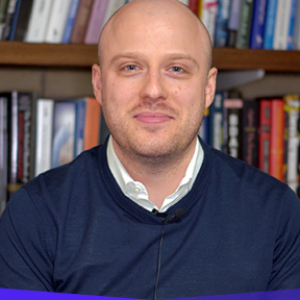
4 days ago
Alex Teytelboym - Giving refugees a choice
Alex Teytelboym, Associate Professor of Economics at the University of Oxford, examines the economic reality experienced by refugees.
About Alex Teytelboym
"I am an Associate Professor of Economics at the University of Oxford, where I specialise in market design and network economics.
My research interests include how best to run complex auctions and how networks shape the diffusion of innovations. I am also interested in applying economic theory to environmental economics and energy markets. I co-founded Refugees.AI, an international collaboration to develop analytical tools to improve refugee resettlement."
The Syrian refugee crisis
When the Syrian refugee crisis really spilled over into Europe, it became apparent that some EU institutions created to deal with refugees were utterly broken. One of the main institutions was called the Dublin Convention, which created rules about applying for asylum upon arriving in an EU country. The rules are quite complex, giving priority to those with family members in a particular country.
However, the refugees who were coming from Syria in 2015, by and large, didn’t have family members in the EU. According to the Dublin Convention, the first country to which they arrived was supposed to process their asylum application.
This was a strange rule since most refugees arrived in Greece and Italy, and those countries were not necessarily where they intended to go. Although refugees were fleeing their home countries in fear for their lives, it seemed strange to limit where they could go once they were safe. Overall, the situation struck me as a horrific injustice and a wasted opportunity to think carefully about helping these people.
Key Points
• The Syrian refugee crisis made it clear that European institutions are ill-equipped to deal with a sudden influx of refugees.
• Current asylum rules limit a refugee’s ability to select their residence, thereby undermining their agency to choose a situation that best reflects their needs.
• Despite common misconceptions, refugees live rich economic lives. Individuals in refugee camps, for example, often engage in entrepreneurial and business activities.
No comments yet. Be the first to say something!